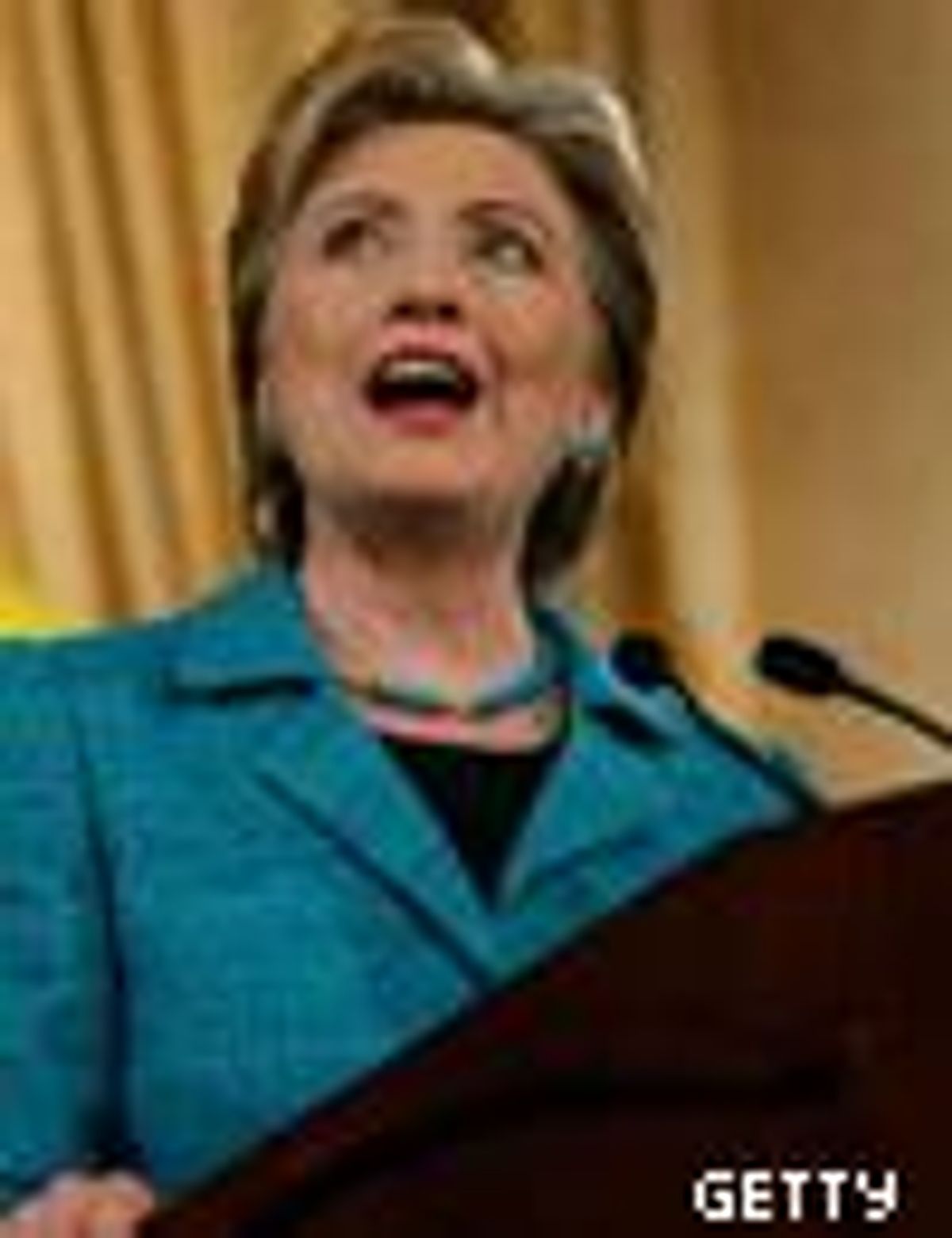Hillary Rodham
Clinton needed a game-changer. Instead, it's almost game
over.
Barack Obama won
a resounding victory in North Carolina after the worst
two-week stretch in his campaign. And Clinton, fueled by a
burst of energy from her convincing win in
Pennsylvania last month, barely eked out a win in
Indiana despite her full-throated populist appeal in that
heavily blue-collar state.
There are six
primaries left in the Democrats' epic battle for the
nomination, but Tuesday's results were decisive on their
own: They offered Clinton her last, best chance to
turn the tables on her rival, and she didn't even come
close.
''It's bad news
for Hillary Clinton, but frankly I think the game changed
a long time ago,'' said unaligned Democratic strategist
Garry South. ''Barack Obama has outraised her
substantially. He's won more states, more pledged
delegates, and is ahead in the popular vote. It's obvious
he's outperformed her.''
Indeed, Obama
managed to outpace Clinton through a period that tested his
mettle and political skills more than any other in the
15-month campaign. In a stretch that pitted Clinton's
gritty determination against Obama's calm fortitude,
the Illinois senator prevailed.
To be sure, Obama
is still struggling to win some demographic groups,
notably blue-collar white voters, who are a key component of
the Democratic base.
Among whites
without college degrees, Clinton outdid Obama by 64% to 35%
in Indiana, and 71% to 26% in North Carolina. The New York
senator and her surrogates have trumpeted that
advantage, hoping to persuade the superdelegates
likely to decide the race will that she would be the
stronger Democratic candidate in the general election.
Seeking to
broaden her advantage with that group, Clinton fashioned
herself as the champion of the working class, railing
against Wall Street ''money brokers'' and promoting a
summer federal gas tax holiday widely panned by
economists and many Democrats.
Obama denounced
Clinton's gas tax proposal as an unabashed pander.
Clinton aides were giddy, feeling that they had drawn Obama
into an argument over the economy, which has long been
viewed as her strong suit.
Obama was also
forced to contend with the reemergence of his
controversial former pastor, Jeremiah Wright, who made
incendiary statements at a Washington press conference
last week. Among other things, he suggested the U.S.
government may have developed the AIDS virus to infect
blacks and had invited the September 11, 2001 terrorist
attacks.
Exit polls showed
the Wright imbroglio did influence about half the
voters in both states as they weighed which candidate to
choose.
Yet none of that
shook the fundamentals of the race, as the results
Tuesday demonstrated. Obama remains ahead of Clinton in
every measure, and the final jury -- superdelegates --
have been trending his way, even as he charted rough
seas. His strong showing in North Carolina and Indiana
will undoubtedly speed up that pace.
Clinton,
meanwhile, is low on cash, and her anemic performance
Tuesday means she may not be able to rely on a surge
in Internet fund-raising that she saw after winning
primaries in Pennsylvania, Ohio, and Texas. She will
meet with superdelegates Wednesday and attend an evening
fund-raiser in Washington -- both key tests of her chances
going forward.
She also
continues to be dogged by an ''honesty gap'' -- hardly a
strong suit in making the case to superdelegates that
she is the more electable candidate. Exit polls in
North Carolina found just 49% of voters believe
Clinton is honest and trustworthy, compared to 71% for
Obama. In Indiana, 54% said Clinton is honest, while
66% said Obama is.
Her aides insist
she will press anew for a resolution to the disputed
contests in Michigan and Florida, both of which she won, but
whose results were voided because the primaries were
moved in violation of Democratic Party rules.
Anticipating
those efforts, Obama campaign manager David Plouffe sent a
memo to superdelegates reminding them of the math. He said
Clinton would need to win 68 percent of the remaining
delegates to win the nomination -- an extremely
unlikely scenario, made harder by her poor performance
Tuesday.
''With the
Clinton path to the nomination getting even narrower, we
expect new and wildly creative scenarios to emerge in the
coming days. While those scenarios may be
entertaining, the are not legitimate and will not be
considered legitimate by this campaign or millions of
supporters, volunteers, and donors.''
At least one
undecided superdelegate saw Clinton nearing the end of her
game as well.
''Senator Clinton
did not get out of the night what she needed,'' said
North Carolina congressman Brad Miller. ''To use a
basketball analogy, she traded baskets. And she needed
to do much better than that this late in the contest
with her down 150 or 160 pledged delegates.'' (Beth
Fouhy, AP)














































































Here's our dream all-queer cast for 'The White Lotus' season 4